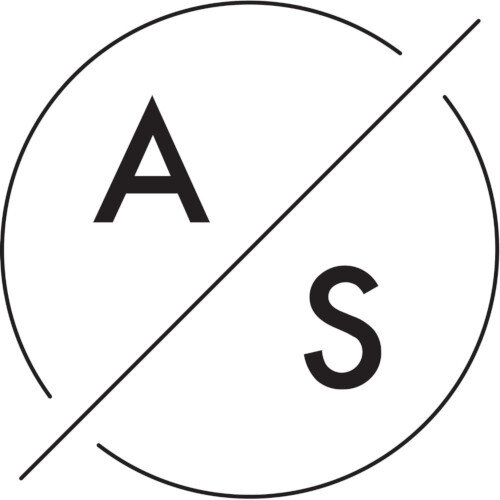Best Antitrust Lawyers in Acharnes
Share your needs with us, get contacted by law firms.
Free. Takes 2 min.
List of the best lawyers in Acharnes, Greece
About Antitrust Law in Acharnes, Greece
Antitrust law - also called competition law - in Acharnes follows the same national and European rules that apply across Greece. Acharnes is part of the Attica region and local businesses, public contracts and markets there are subject to Greek competition rules and to European Union competition law where relevant. The main aim of antitrust law is to protect competition in the market - to prevent cartels and unfair coordination, to stop abuse by dominant firms, and to control mergers and public support that might distort competition. For practical purposes anyone in Acharnes - consumers, small businesses, suppliers or large companies - will interact with national enforcement authorities rather than with municipal authorities when dealing with antitrust issues.
Why You May Need a Lawyer
Competition cases can be complex and they often affect a company’s operations, reputation and finances. You may need a lawyer in Acharnes in situations such as:
- You receive a notice of a dawn raid or inspection from competition authorities and need immediate legal representation.
- Your company is under investigation for alleged price-fixing, market allocation, bid-rigging or other suspected cartel behaviour.
- Your business is accused of abusing a dominant market position - for example by imposing unfair trading conditions or refusing access to essential facilities.
- You are planning a merger, acquisition or joint venture that could require notification to the Hellenic Competition Commission - you will need advice on whether notification is required and how to prepare filings.
- You need to design or update a compliance program and internal policies to reduce the risk of antitrust violations.
- You want to bring a damages claim for harm caused by anti-competitive conduct, or you need a defence in civil litigation arising from competition issues.
- You are considering a leniency application because your business took part in a cartel and you want to seek immunity or reduced penalties.
Local Laws Overview
Key aspects of competition law that apply to Acharnes are set by Greek law and EU law working together. Important points to understand:
- Legal framework - Greek competition law is aligned with EU competition rules. The main national statute is the Greek Competition Act and enforcement follows both national legislation and the EU framework. EU treaty rules - Article 101 and Article 102 of the Treaty on the Functioning of the European Union - also apply when conduct affects trade between EU Member States.
- Enforcement authority - The primary national enforcer is the Hellenic Competition Commission - an independent administrative authority that investigates cases, imposes sanctions and issues guidance. For conduct that affects multiple EU countries the European Commission may also be involved.
- Prohibited conduct - Typical prohibitions include restrictive agreements and practices between competitors, cartels and bid-rigging, and abuse of a dominant position by a firm. Vertical restraints and resale price maintenance can also attract attention if they restrict competition.
- Merger control - Transactions that meet the legal thresholds or that have significant competitive effects may need to be notified to the Hellenic Competition Commission for clearance before completion. Merger control aims to prevent concentrations that would significantly impede effective competition.
- Sanctions and remedies - Enforcement can lead to administrative fines, behavioral and structural remedies, and orders to cease illegal conduct. Under EU and national rules fines can be substantial and are often based on turnover or other financial measures. In addition, harmed parties may pursue damages in civil proceedings.
- Procedure and rights - During an investigation authorities may conduct on-site inspections - often called dawn raids - and require production of documents and information. Businesses have rights to legal representation, to receive a statement of objections, and to appeal decisions in national courts.
- Leniency and cooperation - Both Greek and EU regimes provide leniency or immunity programs for parties that self-report cartel involvement and cooperate with investigators. Proper handling of a leniency application is legally and factually delicate and usually requires specialist counsel.
Frequently Asked Questions
What counts as an antitrust violation in Greece?
An antitrust violation typically involves agreements or concerted practices that restrict competition - such as price-fixing, market sharing or bid-rigging - or unilateral conduct by a dominant firm that exploits or excludes competitors. Mergers that substantially lessen competition can also be controlled. The key question is whether the conduct harms competitive conditions and consumer welfare.
Who enforces antitrust rules for businesses in Acharnes?
Enforcement is handled by national authorities - principally the Hellenic Competition Commission - and by the European Commission where conduct affects cross-border trade within the EU. Local municipal authorities do not enforce antitrust rules, but local markets and contracts in Acharnes can be the subject of national investigations.
What should I do if competition authorities want to inspect my premises?
If investigators arrive you should remain calm, identify the inspectors and ask for written authorization. Immediately notify legal counsel and preserve documents. You and your lawyer should clarify the scope of the inspection, cooperate where appropriate, and protect legal privilege for communications with lawyers. Do not destroy or hide evidence - that would lead to serious penalties.
Can individuals and small businesses be fined or punished?
Yes. Both companies and, in some cases, responsible individuals can face administrative fines and other sanctions. Penalties are intended to deter unlawful conduct regardless of the size of the business. The exact outcome depends on the facts, the role of the person or entity, and any mitigating factors such as cooperation or self-reporting.
What is a leniency program and should I consider it?
A leniency program offers immunity or reduced penalties to parties that first report and fully cooperate in cartel investigations. It can be an effective way to avoid or reduce fines, but applications must be handled carefully and quickly, and usually through specialised lawyers. Consider leniency if your business was involved in a cartel and you can provide evidence that substantially helps the investigation.
Do EU competition rules apply to my business in Acharnes?
Yes - EU rules apply when the conduct has an effect on trade between EU Member States. Many cases have cross-border elements and both national and EU competition law can be relevant. National law implements and complements EU rules, so businesses must consider both levels.
How long do investigations and proceedings usually take?
Timescales vary widely. Initial inspections can be swift, but full investigations and final decisions often take many months - sometimes years - depending on complexity, number of parties and the need for evidentiary analysis. Appeals to courts add further time. Early legal advice can help manage timing and process.
Can I sue for damages if I was harmed by anti-competitive conduct?
Yes. Private enforcement is possible - injured parties may bring civil claims for damages caused by anti-competitive behaviour. These cases require evidence of the infringement and causation, and often rely on findings from competition authority decisions or parallel evidence. Specialist counsel can advise on prospects and remedies.
What steps can a small business take to reduce antitrust risk?
Implement a clear compliance policy, train employees on competition rules, avoid inappropriate communications with competitors, review contracts and bid processes for anti-competitive clauses, document legitimate business reasons for pricing and distribution decisions, and seek legal advice when in doubt. A preventative approach is often the most cost-effective.
How do I choose a competition lawyer near Acharnes?
Choose a lawyer or firm with experience in Greek and EU competition law, a track record in investigations or merger filings if relevant, and experience with courts and enforcement authorities. Local presence in Attica or Athens is useful for practical reasons. Ask about prior relevant cases, fees, and whether the lawyer will coordinate with any specialists needed - for example forensic accountants or EU counsel.
Additional Resources
For someone in Acharnes seeking help or information, useful institutions and resources include national and EU bodies and local professional organisations. The Hellenic Competition Commission publishes decisions and guidance and is the main national authority on competition matters. The European Commission - Directorate-General for Competition - handles EU-level cases and provides guidance on EU competition rules. The Hellenic Consumer Ombudsman and the General Secretariat for Consumer Affairs can assist on consumer issues that sometimes overlap with competition concerns. For legal assistance look to the Athens Bar Association for lists of local qualified lawyers experienced in competition law. Finally, specialist textbooks, professional seminars and publications by competition authorities provide practical guidance and case law summaries - these resources help businesses and lawyers stay informed about evolving rules and precedents.
Next Steps
If you think you need legal assistance with an antitrust matter in Acharnes, consider the following practical steps:
- Preserve evidence - implement a document-hold to avoid destruction of emails, records and other materials relevant to the issue. This is critical during investigations.
- Contact an experienced competition lawyer immediately - early advice helps manage risk and preserve legal rights. If you received a formal notice, time can be very limited.
- Assess whether urgent actions are needed - for example to stop potentially unlawful practices, to prepare for an inspection, or to consider a leniency application.
- Gather facts - prepare a clear record of agreements, communications, contracts and the market context to enable your counsel to evaluate the situation quickly.
- Consider compliance and remediation - whether or not you are under investigation, a compliance review can reduce future risk and demonstrate good faith to authorities.
- Plan for costs and timelines - litigation or regulatory proceedings can be lengthy and costly, so discuss fee arrangements and expected stages with your lawyer.
Getting prompt, specialist advice is the most important step. Antitrust matters can have serious financial and operational consequences, and local counsel with experience in Greek and EU competition law will help you navigate enforcement, defend your position and pursue appropriate remedies.
Lawzana helps you find the best lawyers and law firms in Acharnes through a curated and pre-screened list of qualified legal professionals. Our platform offers rankings and detailed profiles of attorneys and law firms, allowing you to compare based on practice areas, including Antitrust, experience, and client feedback.
Each profile includes a description of the firm's areas of practice, client reviews, team members and partners, year of establishment, spoken languages, office locations, contact information, social media presence, and any published articles or resources. Most firms on our platform speak English and are experienced in both local and international legal matters.
Get a quote from top-rated law firms in Acharnes, Greece — quickly, securely, and without unnecessary hassle.
Disclaimer:
The information provided on this page is for general informational purposes only and does not constitute legal advice. While we strive to ensure the accuracy and relevance of the content, legal information may change over time, and interpretations of the law can vary. You should always consult with a qualified legal professional for advice specific to your situation.
We disclaim all liability for actions taken or not taken based on the content of this page. If you believe any information is incorrect or outdated, please contact us, and we will review and update it where appropriate.









